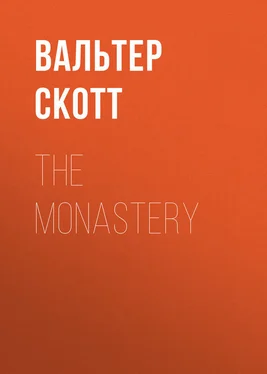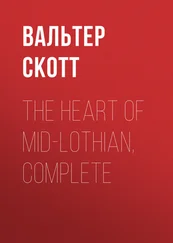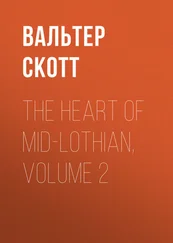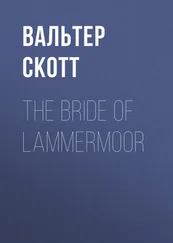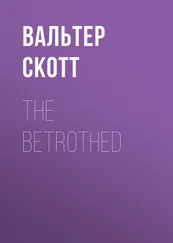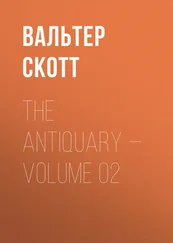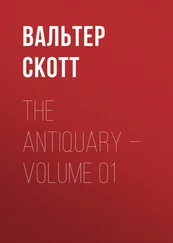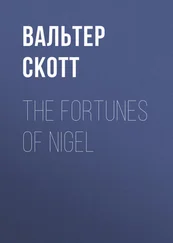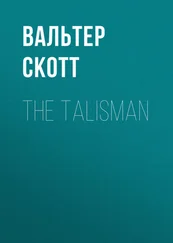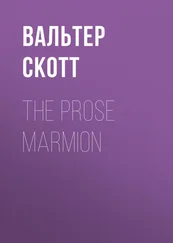Вальтер Скотт - The Monastery
Здесь есть возможность читать онлайн «Вальтер Скотт - The Monastery» — ознакомительный отрывок электронной книги совершенно бесплатно, а после прочтения отрывка купить полную версию. В некоторых случаях можно слушать аудио, скачать через торрент в формате fb2 и присутствует краткое содержание. Жанр: foreign_antique, foreign_prose, Альтернативная история, на английском языке. Описание произведения, (предисловие) а так же отзывы посетителей доступны на портале библиотеки ЛибКат.
- Название:The Monastery
- Автор:
- Жанр:
- Год:неизвестен
- ISBN:нет данных
- Рейтинг книги:4 / 5. Голосов: 1
-
Избранное:Добавить в избранное
- Отзывы:
-
Ваша оценка:
- 80
- 1
- 2
- 3
- 4
- 5
The Monastery: краткое содержание, описание и аннотация
Предлагаем к чтению аннотацию, описание, краткое содержание или предисловие (зависит от того, что написал сам автор книги «The Monastery»). Если вы не нашли необходимую информацию о книге — напишите в комментариях, мы постараемся отыскать её.
The Monastery — читать онлайн ознакомительный отрывок
Ниже представлен текст книги, разбитый по страницам. Система сохранения места последней прочитанной страницы, позволяет с удобством читать онлайн бесплатно книгу «The Monastery», без необходимости каждый раз заново искать на чём Вы остановились. Поставьте закладку, и сможете в любой момент перейти на страницу, на которой закончили чтение.
Интервал:
Закладка:
“God be with you, gallant Southern!” said Elspeth Glendinning, but not till he was out of hearing, spurring on his good horse to regain the head of his party, whose plumage and armour were now glancing and gradually disappearing in the distance, as they winded down the glen.
“Mother,” said the elder boy, “I will not say amen to a prayer for a Southern.”
“Mother,” said the younger, more reverentially, “is it right to pray for a heretic?”
“The God to whom I pray only knows,” answered poor Elspeth; “but these two words, Southern and heretic, have already cost Scotland ten thousand of her best and bravest, and me a husband, and you a father; and, whether blessing or banning, I never wish to hear them more. – Follow me to the Place, sir,” she said to Brittson, “and such as we have to offer you shall be at your disposal.”
Chapter the Third
They lighted down on Tweed water
And blew their coals sae het,
And fired the March and Teviotdale,
All in an evening late.
The report soon spread through the patrimony of Saint Mary’s and its vicinity, that the Mistress of Glendearg had received assurance from the English Captain, and that her cattle were not to be driven off, or her corn burned. Among others who heard this report, it reached the ears of a lady, who, once much higher in rank than Elspeth Glendinning, was now by the same calamity reduced to even greater misfortune.
She was the widow of a brave soldier, Walter Avenel, descended of a very ancient Border family, who once possessed immense estates in Eskdale. These had long since passed from them into other hands, but they still enjoyed an ancient Barony of considerable extent, not very far from the patrimony of Saint Mary’s, and lying upon the same side of the river with the narrow vale of Glendearg, at the head of which was the little tower of the Glendinnings. Here they had lived, bearing a respectable rank amongst the gentry of their province, though neither wealthy nor powerful. This general regard had been much augmented by the skill, courage, and enterprise which had been displayed by Walter Avenel, the last Baron.
When Scotland began to recover from the dreadful shock she had sustained after the battle of Pinkie-Cleuch, Avenel was one of the first who, assembling a small force, set an example in those bloody and unsparing skirmishes, which showed that a nation, though conquered and overrun by invaders, may yet wage against them such a war of detail as shall in the end become fatal to the foreigners. In one of these, however, Walter Avenel fell, and the news which came to the house of his fathers was followed by the distracting intelligence, that a party of Englishmen were coming to plunder the mansion and lands of his widow, in order, by this act of terror, to prevent others from following the example of the deceased.
The unfortunate lady had no better refuge than the miserable cottage of a shepherd among the hills, to which she was hastily removed, scarce conscious where or for what purpose her terrified attendants were removing her and her infant daughter from her own house. Here she was tended with all the duteous service of ancient times by the shepherd’s wife, Tibb Tacket, who in better days had been her own bowerwoman. For a time the lady was unconscious of her misery; but when the first stunning effect of grief was so far passed away that she could form an estimate of her own situation, the widow of Avenel had cause to envy the lot of her husband in his dark and silent abode. The domestics who had guided her to her place of refuge, were presently obliged to disperse for their own safety, or to seek for necessary subsistence; and the shepherd and his wife, whose poor cottage she shared, were soon after deprived of the means of affording their late mistress even that coarse sustenance which they had gladly shared with her. Some of the English forayers had discovered and driven off the few sheep which had escaped the first researches of their avarice. Two cows shared the fate of the remnant of their stock; they had afforded the family almost their sole support, and now famine appeared to stare them in the face.
“We are broken and beggared now, out and out,” said old Martin the shepherd – and he wrung his hands in the bitterness of agony, “the thieves, the harrying thieves I not a cloot left of the haill hirsel!”
“And to see poor Grizzle and Crumbie,” said his wife, “turning back their necks to the byre, and routing while the stony-hearted villains were brogging them on wi’ their lances!”
“There were but four of them,” said Martin, “and I have seen the day forty wad not have ventured this length. But our strength and manhood is gane with our puir maister.”
“For the sake of the holy rood, whisht, man,” said the goodwife, “our leddy is half gane already, as ye may see by that fleightering of the ee-lid – a word mair and she’s dead outright.”
“I could almost wish,” said Martin, “we were a’ gane, for what to do passes my puir wit. I care little for mysell, or you, Tibb, – we can make a fend – work or want – we can do baith, but she can do neither.”
They canvassed their situation thus openly before the lady, convinced by the paleness of her look, her quivering lip, and dead-set eye, that she neither heard nor understood what they were saying.
“There is a way,” said the shepherd, “but I kenna if she could bring her heart to it, – there’s Simon Glendinning’s widow of the glen yonder, has had assurance from the Southern loons, and nae soldier to steer them for one cause or other. Now, if the leddy could bow her mind to take quarters with Elspeth Glendinning till better days cast up, nae doubt it wad be doing an honour to the like of her, but – ”
“An honour,” answered Tibb, “ay, by my word, sic an honour as wad be pride to her kin mony a lang year after her banes were in the mould. Oh! gudeman, to hear ye even the Lady of Avenel to seeking quarters wi’ a Kirk-vassal’s widow!”
“Loath should I be to wish her to it,” said Martin; “but what may we do? – to stay here is mere starvation; and where to go, I’m sure I ken nae mair than ony tup I ever herded.”
“Speak no more of it,” said the widow of Avenel, suddenly joining in the conversation, “I will go to the tower. – Dame Elspeth is of good folk, a widow, and the mother of orphans, – she will give us house-room until something be thought upon. These evil showers make the low bush better than no bield.”
“See there, see there,” said Martin, “you see the leddy has twice our sense.”
“And natural it is,” said Tibb, “seeing that she is convent-bred, and can lay silk broidery, forby white-seam and shell-work.”
“Do you not think,” said the lady to Martin, still clasping her child to her bosom and making it clear from what motives she desired the refuge, “that Dame Glendinning will make us welcome?”
“Blithely welcome, blithely welcome, my leddy,” answered Martin, cheerily, “and we shall deserve a welcome at her hand. Men are scarce now, my leddy, with these wars; and gie me a thought of time to it, I can do as good a day’s darg as ever I did in my life, and Tibb can sort cows with ony living woman.”
“And muckle mair could I do,” said Tibb, “were it ony feasible house; but there will be neither pearlins to mend, nor pinners to busk up, in Elspeth Glendinning’s.”
“Whisht wi’ your pride, woman,” said the shepherd; “eneugh you can do, baith outside and inside, an ye set your mind to it; and hard it is if we twa canna work for three folk’s meat, forby my dainty wee leddy there. Come awa, come awa, nae use in staying here langer; we have five Scots miles over moss and muir, and that is nae easy walk for a leddy born and bred.”
Читать дальшеИнтервал:
Закладка:
Похожие книги на «The Monastery»
Представляем Вашему вниманию похожие книги на «The Monastery» списком для выбора. Мы отобрали схожую по названию и смыслу литературу в надежде предоставить читателям больше вариантов отыскать новые, интересные, ещё непрочитанные произведения.
Обсуждение, отзывы о книге «The Monastery» и просто собственные мнения читателей. Оставьте ваши комментарии, напишите, что Вы думаете о произведении, его смысле или главных героях. Укажите что конкретно понравилось, а что нет, и почему Вы так считаете.
